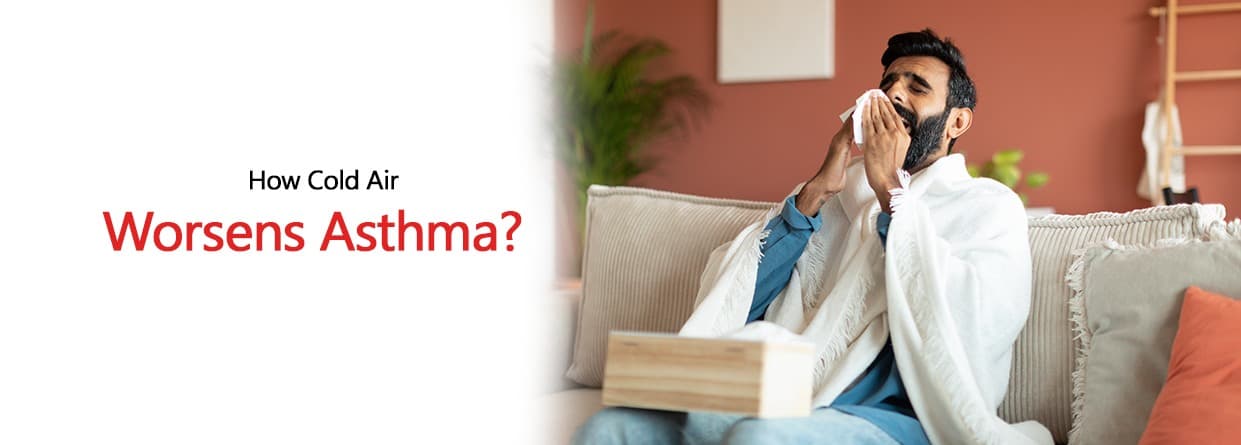
Cold air often triggers asthma attacks, and here’s why.
As winter approaches, many enjoy cosy blankets and hot drinks. But for people with asthma, the season can be tough. Cold air, pollution and spending time outdoors can make breathing harder, turning winter into a struggle.
On Republic Day 2025, many stepped outside without realising the hidden risks in the air. The National Air Quality Index showed pollution levels between "moderate" and "poor," making it difficult to breathe—especially for those with asthma, lung disease, or heart problems. Doctors at the CK Birla Hospital in Delhi reported a rise in asthma and respiratory cases, mostly due to pollution and colder temperatures.
Don't let your city's air become as dangerous as Delhi’s heavy smog. Your lung health is important. This winter, knowing what triggers asthma and taking precautions can help you breathe easier. Stay with us as we discuss why winter worsens asthma and how to protect your lungs. If you or a family member is suffering from Asthma, please contact our Pulmonologist at CMRI Hospital, Kolkata.
Cold air often triggers asthma attacks, and here’s why.
Here are some most common causes of asthma attacks during the colder months:
While you can’t control the weather, you can take steps to protect yourself throughout this season. Here are simple yet effective tips:
Taking proactive steps can help prevent asthma flare-ups during the winter. Follow these simple tips:
Keep Warm and Dress Properly
Use Your Inhaler Before Going Outside
Maintain Indoor Air Quality
Stay Active but Indoors
Take Care of Your Health
If you’re struggling with breathing issues or asthma, don't wait. Get expert care today! Book an appointment with pulmonologists at CK Birla Hospital, Koltala (CMRI).
Winter can be challenging for asthma sufferers, but with the right precautions, you can manage your symptoms and breathe easier. Understanding how cold air affects asthma, recognising triggers, and taking preventive steps can make a big difference. Stay warm, take care of your health, and don’t let winter hold you back from enjoying the season.
Yes, cold air can trigger exercise-induced asthma by tightening airways and making breathing difficult.
Avoid triggers, carry a rescue inhaler, take prescribed medications, and monitor air quality.
No, asthma is not contagious; it's a chronic condition often linked to genetics and environmental factors.
Yes, a severe asthma attack can be life-threatening if not treated promptly. Seek emergency care if needed.
Written and Verified by:

Dr. Raja Dhar is the Director & Head of Pulmonology Dept. at BM Birla Heart Hospital and CMRI Hospital, Kolkata, with over 27 years of experience. He specializes in interstitial lung disease, asthma & allergy, COPD, sleep medicine, advanced lung function services, interventional & diagnostic pulmonology, rare stroke & orphan lung diseases, and all disciplines of respiratory medicine.
Similar Pulmonology Blogs
Book Your Appointment TODAY
© 2024 CMRI Kolkata. All Rights Reserved.